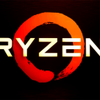Conclusion
AMD unveiled the highly anticipated Ryzen 8000G desktop APU series featuring the RDNA 3 iGPU with the official market launch being January 31st. Exactly one year after introducing the APU Phoenix (tested) or Ryzen 7x40 Mobile at CES 2023, AMD has transitioned this architecture into the desktop arena for CES 2024. The desktop APU is now adopting the Ryzen 8000 nomenclature, aligning with the Phoenix refresh "Hawk Point," which underwent AI-related adjustments in the notebook segment towards the end of 2023. AMD has essentially taken the well-established notebook solution, made slight clock speed adjustments to accommodate a higher TDP, and packaged it in an AM5 form factor instead of a BGA package. Nonetheless, this introduction marks a significant milestone for the AM5 socket. Instead of just eleven processors, there are now four additional processors available, featuring an integrated GPU suitable for gaming—a first in the Ryzen series. Until now, Ryzen 7000 offered only a 2 CU RDNA 2 iGPU primarily designed for displaying 2D content in Windows, making gaming practically unfeasible.
| CPU cores | threads | GPU | Codename | Base clock/max. Turbo | TDP | Price | |
|---|---|---|---|---|---|---|---|
| Ryzen 7 8700G | 8 × Zen 4 | 16 | Radeon 780M (12CU, 2.9GHz) | Phoenix | 4.2 / 5.1 GHz | 65W | $329 |
| Ryzen 5 8600G | 6 × Zen 4 | 12 | Radeon 760M (8CU, 2.8GHz) | Phoenix | 4.3 / 5.0 GHz | 65W | $229 |
| Ryzen 5 8500G | 2 × Zen 4 +4 × Zen4c | 12 | Radeon 740M (4CU, 2.8GHz) | Phoenix 2 | 3.5/5.0GHz 3.2/3.7GHz | 65W | $179 |
| Ryzen 3 8300G | 1×Zen 4 +3×Zen4c | 8 | Radeon 740M (4CU, 2.6GHz) | Phoenix 2 | 3.4/4.9GHz 3.2/3.6GHz (Zen4C) | 65W | OEM |
Similar to the notebook segment, the desktop category features a division: two APUs are pure Zen 4 solutions, while the two smaller variants combine Zen 4 and Zen 4c cores. The clock speeds disclosed by AMD currently pertain to the Zen 4 cores.
Gaming performance
We compared the game results of this entry-level (basically laptop performance Ryzen 8000G processor with the desktop GeForce RTX 4090, which is not an objective comparison. However, the CPU series proved to be a strong contender and held its own compared to its big brother the desktop version, mostly comparable with the Ryzen series 5000 performance at a shy 65W TDP with integrated graphics. The Ryzen 5 8600G with its latest-gen Zen 4 core design yet lower cache, performed well enough and held its ground. if you plan for dedicated gaming (with an add-in graphics card) of course the regular 7000 series and preferable X3D processor work far better magic. We tested games with the same quality settings we use in our graphics card reviews, ergo, best quality settings. As you can see, the 8000G processors have enough (but barely) gaming stamina. Of course, a lower more mainstream GPU would easily bring down the big differences due to GPU limitations. That integrated graphics however, is excellent.
Conclusion
So I was thinking about it, and I'm just not sure who this processor is intended for? We've seen the 7740HS 'clone' already in Mini PCs for example. None the less, the low power and versatility of the Ryzen 8000G series is good, featuring two distinct core architectures. The Ryzen 3 8300G and Ryzen 5 8500G/8600G/8700G utilize the Phoenix 2 design, combining Zen4 and Zen4c cores for a balanced performance and efficiency approach for the first two. While the 8300G boasts 4 cores (1C+3c) and 8 threads, the 8500G offers 6 cores (2C+4c) and 12 threads, making them budget-friendly options with 4 RDNA3 CUs in their graphics core. For those seeking more high-end performance, the Ryzen 5 8600G and Ryzen 7 8700G feature full Zen4 cores in the original Phoenix design. The 8600G boasts 6 cores (6C/12T), while the 8700G offers 8 cores (8C/16T) and includes 8 and 12 RDNA3 CUs for enhanced integrated graphics. Overall we're left with a bit of a mediocre experience. This stuff is excellent for an internet PC, and if you throw in mainstream graphics cards you can even game quite well. Nothing however screams performance, but in AMD's defence, that's also not what this product series is about. You get good features, and combined with the B650 platform broad and wide connectivity. For a mainstream PC the integrated graphics is plenty it's performance for $229, however compelling or truly convincing, it's not. If you want a bit more bite though, the 8700G with its 8-cores would surely get my preference, but at $329 I'd probably steer you to the Ryzen 7000 range on the Ryzen 5 7700 65W part with more cache unless you really wanna go for fast integrated graphics.
- Sign up to receive a notification when we publish a new article
- Or go back to Guru3D's front page.

